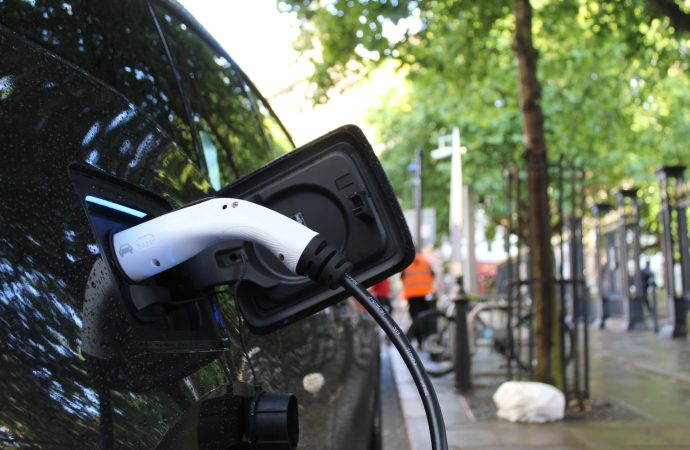s the world continues to grapple with the urgent need for sustainable solutions, one Korean carmaker has made an electrifying splash in the market. With their $30,000 electric SUV, they’re not only changing the way we view eco-friendly vehicles but also proving that going green can be profitable. In this blog post, we’ll explore how
s the world continues to grapple with the urgent need for sustainable solutions, one Korean carmaker has made an electrifying splash in the market. With their $30,000 electric SUV, they’re not only changing the way we view eco-friendly vehicles but also proving that going green can be profitable. In this blog post, we’ll explore how this innovative model is making waves and transforming the intersection of environmentalism and economics. Get ready to buckle up and join us on a ride towards a greener future!
Background of the Electric SUV
The Korean carmaker, Kia Motors, is releasing a new electric SUV that it claims will help save the environment and the economy. The car is called the K5 EcoSport and it has a range of 155 miles on a single charge. It also has a claimed fuel efficiency of 115 MPGe.
The K5 EcoSport is not the only electric vehicle on the market, but it is one of the most affordable. It competes with vehicles like the Nissan Leaf and the Tesla Model S. The K5 EcoSport costs about $30,000 before taxes and incentives. That’s about half what you would pay for a comparable gasoline-powered vehicle.
The biggest benefit of electric cars is that they have no emissions. That means they can help reduce pollution from cars and trucks, which in turn can improve air quality and save lives. The K5 EcoSport also has other benefits: it’s smaller than traditional SUVs, so it takes up less space in a garage, and it’s cheaper to maintain than gasoline-powered vehicles.
The Economic Implications
The Korean car market has been growing rapidly in recent years, and electric vehicles are now a major part of the market. The Korean automaker Hyundai is leading the way with its $1,000 electric SUV, which is set to hit the market soon. In addition to saving on gas, electric vehicles have other advantages over traditional cars. For example, they generate no emissions and can be plugged into the grid to recharge.
The impact of Korea’s growing electric vehicle market on the economy is still unclear, but there are several potential benefits. Electric vehicles could lead to reduced demand for petroleum products and reduce environmental pollution. In addition, as more people switch to electric cars, the infrastructure needed to support them will develop, including charging stations and batteries that can store energy from solar panels or wind turbines. This could create new jobs in engineering and construction.
The key question now is how fast Korea’s electric vehicle market will grow. If it matches or exceeds the growth rates seen in other developed countries such as Germany and Japan then the economic benefits would be significant. If not, then perhaps only a small number of people will switch to electric cars, meaning that some economic benefits may not materialize.
The Environmental Implications
Korean automakers are helping to save the environment and the economy with their electric SUV plans. In March of this year, Hyundai announced that it would be teaming up with Tesla to create a new electric SUV called the Ioniq. The Ioniq will use an advanced lithium ion battery that will help reduce CO2 emissions by 60%. This is huge news because Hyundai is one of Korea’s largest carmakers and they have a big impact on the industry as a whole.
The Ioniq also has other environmental benefits. For one, it uses less energy than traditional cars, which reduces CO2 emissions. It also has low emissions during production, so it creates little pollution when it’s being manufactured. And lastly, the Ioniq has a very long range, so you can really take your time getting where you’re going without having to worry about running out of juice.
This is great news for the environment and for the economy too. By reducing CO2 emissions and creating less pollution, Hyundai is helping to save resources and money in the long run. And by providing a convenient alternative to gas-powered vehicles, the Ioniq could help encourage more people to switch over to electric vehicles.
Conclusion
As the world becomes increasingly reliant on electric vehicles, it is important to consider the environmental and economic impacts of these vehicles. Korean carmaker Hyundai has released a $30,000 electric SUV that demonstrates just how much impact this emerging technology can have on both the environment and the economy. By reducing emissions and improving fuel efficiency, this vehicle could have a significant positive effect on the planet as well as our wallets.

















Leave a Comment
Your email address will not be published. Required fields are marked with *